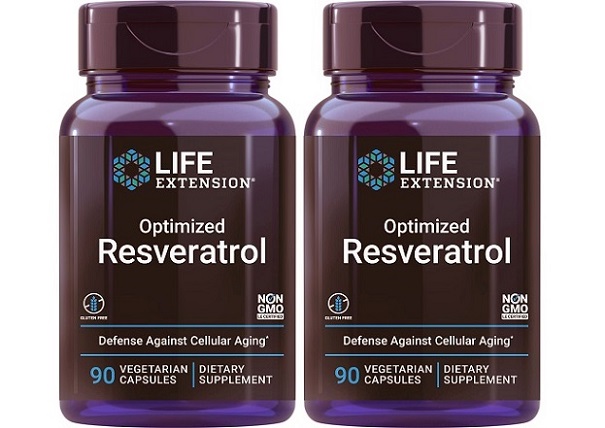Resveratrol Found to Suppress Harmful Neutrophil Extracellular Traps Linked to Lung Injury, Cancer and COVID-19
Nikhil Prasad Fact checked by:Thailand Medical News Team Jul 05, 2025 7 months, 1 week, 2 days, 2 hours, 47 minutes ago
Thailand Medical News: A new review conducted by researchers from Mashhad University of Medical Sciences in Iran, Dr. Harisingh Gour Vishwavidyalaya in India, and Chitkara University in India has shed light on how resveratrol—a plant-derived compound known for its powerful antioxidant properties—can help regulate the formation of neutrophil extracellular traps (NETs), which are increasingly being implicated in a range of inflammatory and immune-related diseases.
 Resveratrol Found to Suppress Harmful Neutrophil Extracellular Traps Linked to Lung Injury, Cancer and COVID-19
Resveratrol Found to Suppress Harmful Neutrophil Extracellular Traps Linked to Lung Injury, Cancer and COVID-19
This
Thailand Medical News report highlights how neutrophils, a type of white blood cell, release web-like structures called NETs as part of the body’s immune defense system. While these traps are designed to capture and destroy pathogens like bacteria, viruses, and fungi, uncontrolled NET formation, also known as NETosis, has been linked to worsening of diseases such as COVID-19, cancer, acute lung injury, and autoimmune disorders. Researchers reviewed data from multiple studies and found that resveratrol may be able to modulate this process, potentially offering a new therapeutic path forward.
Understanding NETosis and Its Dangerous Side
Neutrophils are the most abundant immune cells in the bloodstream and are the first to respond during infection. One of their most intriguing defense mechanisms is NETosis—a process by which neutrophils expel a sticky mesh made of chromatin (DNA and proteins) to trap and neutralize invaders. While NETs serve as a vital tool against pathogens, they can also trigger inflammation and tissue damage when not properly regulated.
The review explains that NETs contain DNA from both the nucleus and mitochondria, and are laced with toxic proteins that can damage not only the invaders but also healthy tissues. These traps have been found in the lungs of patients with COVID-19 and in tumors, suggesting that NETs can fuel disease progression. Worse still, in autoimmune diseases, the body may start producing antibodies against its own NET components, further amplifying immune dysfunction.
How Resveratrol Comes into Play
Resveratrol, a natural polyphenol found in grapes, berries, and peanuts, has gained global attention for its anti-inflammatory, antioxidant, and anticancer properties. In recent years, it has been studied for its effects on various immune functions. This new review compiles strong evidence suggesting that resveratrol can inhibit the harmful aspects of NETosis.
According to the researchers, resveratrol works by interfering with molecular pathways that are essential to NET formation. For instance, it reduces the activity of enzymes like NADPH oxidase, and blocks signaling molecules such as ERK and NF-κB, which are known to drive inflammation. One of the most compelling mechanisms is its ability to activate SIRT1, a protein that controls chromatin structure, thereby reducing the likelihood of DNA expulsion and NET release.
gt;
In experimental models, resveratrol has shown the ability to:
-Decrease neutrophil activation and adhesion
-Inhibit the respiratory burst (a sudden release of reactive oxygen species)
-Suppress degranulation (the release of toxic substances from granules)
-Reduce NET production in lung tissue affected by acute injury or viral infections
-Block the spread of cancer cells in models of breast cancer
-Alleviate liver damage during ischemia-reperfusion injury
Implications for COVID-19 and Beyond
In the context of COVID-19, where excessive NET formation contributes to severe respiratory distress and blood clotting complications, the ability of resveratrol to calm this immune response is particularly significant. Its potential as a therapeutic agent in viral infections, chronic inflammation, and even cancer is now gaining traction in medical circles.
The researchers caution, however, that while findings are promising, more clinical research is needed to determine effective dosages, delivery methods, and long-term safety in humans. Nonetheless, resveratrol emerges as a compelling natural compound with powerful immunomodulatory effects that may help curb the damaging consequences of runaway NETosis.
Conclusion
The study confirms that resveratrol has the ability to limit the harmful activation and behavior of neutrophils through multiple molecular pathways. By reducing the formation of neutrophil extracellular traps, it helps to prevent tissue damage in diseases marked by excessive inflammation and immune overreaction. These findings open the door to new therapeutic strategies targeting NETs, especially in conditions such as COVID-19, acute lung injury, and cancer. The research team emphasizes the need for human trials to better understand how resveratrol can be safely and effectively used to control immune-mediated damage in various illnesses.
The study findings were published in the peer reviewed journal: Mutation Research – Reviews in Mutation Research.
https://www.sciencedirect.com/science/article/abs/pii/S1383574225000213
For the latest on NETosis, keep on logging to
Thailand Medical News
Read Also:
https://www.thailandmedical.news/news/resveratrol-helps-reduce-fibrosis-in-diabetic-muscles-and-fat-tissues-but-does-not-repair-damage
https://www.thailandmedical.news/news/murine-study-finds-that-resveratrol-protects-against-retinal-degeneration
https://www.thailandmedical.news/news/resveratrol-a-potential-natural-remedy-for-glaucoma-related-vision-damage
